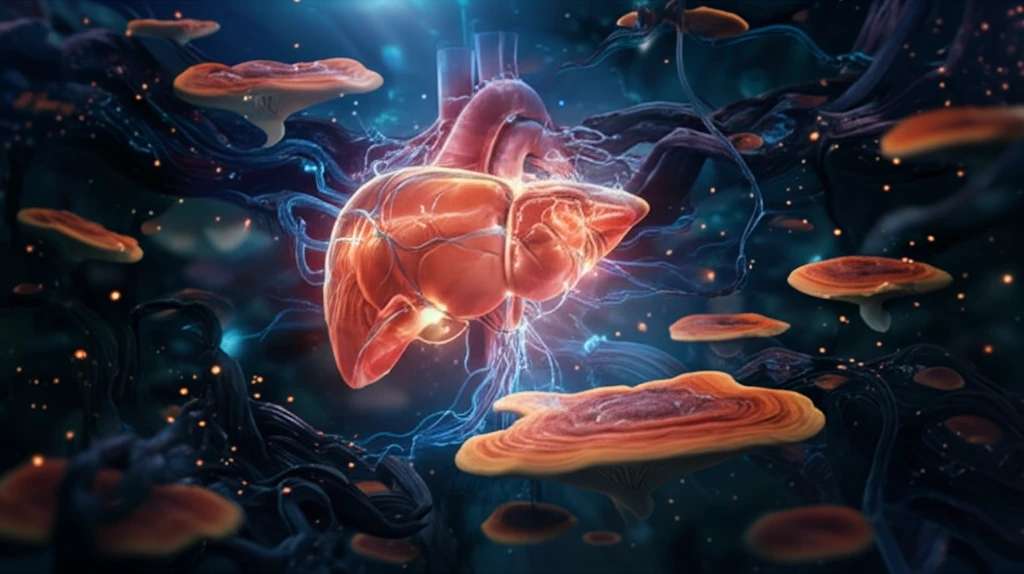
Unlock Liver Health: How Ganoderma Triterpenoids Fight Cadmium Toxicity
"Discover the potent protective effects of Ganoderma triterpenoids against cadmium-induced oxidative stress and inflammation in the liver, offering new hope for detoxification and liver wellness."
In today's world, exposure to environmental toxins is an ever-present concern. Among these toxins, cadmium stands out as a particularly insidious threat due to its ability to accumulate in the body over time. Cadmium, a heavy metal found in air, soil, and various food sources, poses a significant risk to liver health. The liver, being a primary detoxification organ, is especially vulnerable to cadmium-induced damage, leading to oxidative stress and inflammation.
Fortunately, nature may hold a key to protecting our livers from cadmium's harmful effects. Ganoderma lucidum, a medicinal mushroom revered in traditional Asian medicine, has shown promise in combating liver damage. This mushroom is packed with bioactive compounds, most notably Ganoderma triterpenoids, which have demonstrated antioxidant and anti-inflammatory properties. New research is now focusing on how these triterpenoids can specifically counteract the damaging effects of cadmium on the liver.
This article will delve into the protective capabilities of Ganoderma triterpenoids against cadmium-induced liver injury, drawing from a recent study that explores these effects in detail. We will examine how these compounds work to reduce oxidative stress, quell inflammation, and ultimately safeguard liver health. Whether you're seeking to detoxify your liver, manage exposure to environmental toxins, or simply enhance your overall well-being, understanding the potential of Ganoderma triterpenoids offers a proactive step toward a healthier future.
The Science Behind Ganoderma's Liver Protection

A recent study published in the Journal of Trace Elements in Medicine and Biology investigated the protective effects of Ganoderma triterpenoids on cadmium-induced liver damage in chickens. The study divided chickens into four groups: a control group, a cadmium-exposed group, a Ganoderma triterpenoid treatment group (cadmium + triterpenoids), and a Ganoderma triterpenoid group. The cadmium-exposed group received a diet containing cadmium, while the treatment group received both cadmium and Ganoderma triterpenoids. The researchers then assessed various markers of liver health, including cadmium content, antioxidant enzyme activity, levels of inflammatory factors, and histopathological changes.
- Reduced cadmium accumulation in the liver.
- Boosted antioxidant enzyme activities, helping to neutralize oxidative stress.
- Decreased levels of inflammatory cytokines, reducing inflammation.
- Improved liver tissue health, as evidenced by histopathological examination.
Protecting Your Liver Naturally
The liver plays a crucial role in detoxification, making it essential to protect it from environmental toxins like cadmium. Ganoderma triterpenoids offer a promising natural solution, reducing cadmium accumulation, boosting antioxidant defenses, and suppressing inflammation. Incorporating Ganoderma lucidum into your wellness routine could be a proactive step towards maintaining a healthy and resilient liver, safeguarding your overall well-being in our increasingly toxic world. More studies are always welcome, especially those based on human participants.
